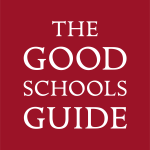The Extended Project Qualification (EPQ) is delivered as part of the curriculum to all pupils studying three A levels.

Welcome to Emanuel
- Welcome from the headmaster
- Our aims
- Strategic Development Plan
- Critical build plan
- Equality, Diversity and Inclusivity at Emanuel
- Safeguarding
- Travelling to Emanuel
- Travelling to the Off-Site Sports Ground (Blagdons)
- Environment and Sustainability
- Visitor Information
- History of Emanuel
- Latest ISI report
- Governors and staff
- Working at Emanuel
- Current vacancies
- In the media
- Policies
Contact
Admissions
- Welcome to Admissions
- FAQs
- Open events
- Year 6 (10+) entry
- Year 7 (11+) entry
- Sixth form (16+) entry
- Fees
- Fee assistance (bursaries) and scholarships
- Siblings
- Prospectus
- Occasional Places
Teaching and Learning
- The Emanuel Academic Curriculum
- Academic Enrichment
- Digital Learning
- Study Skills
- Learning Support
- (I)GCSE results
- A level results
- Higher Education guidance
- Careers guidance
- Teacher Training and Development
Sixth Form
- Welcome to Emanuel Sixth Form
- A levels
- The Emanuel Award
- Extended Project Qualification
- Sixth Form pastoral life
- Sixth Form facilities
- Life in the Sixth Form
- Recent leavers’ stories
- New student perspectives
- Charity and outreach in the Sixth Form
Beyond the Classroom
- Co-curricular
- Sport
- Goddard Lectures
- Music
- Drama
- The Emanuel Expo
- Art & Design
- Clubs and societies
- Outreach
- Duke of Edinburgh Award
- Innovation and enterprise
- Biodiversity Garden
- School trips
Community and Partnerships
- Welcome to community partnerships and outreach
- Charities
- Primary Ambitions
- Emanuel Connect
- Partnerships
- Publications and videos
What’s On
- Latest news
- The Emanuel Edit
- Community Spotlight
- Timings of the day
- Term dates
- Sport fixtures
Support Us
- Giant Strides campaign
- Support our capital campaign
- Ways to give
- New building updates
- The impact of your support
- Critical build plan
- Off site sports ground
- Legacies
- Regular giving
- Development team
Alumni (OEs)
- Welcome
- OE news
- Digital archive
- OE publications
- OE events
- OE stories
- Old Emanuel Association
- Sign up to the OE e-newsletter
Welcome
- Welcome
- OE news
- Digital archive
- OE publications
- OE events
- OE stories
- Old Emanuel Association
- Sign up to the OE e-newsletter












